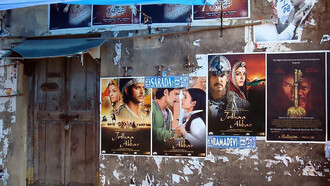As the filming of Succession’s fourth season wraps, fans of the hit HBO show will be looking back at what has been and looking forward – very excitedly – for what is to come. Season three maintained the exceptional quality of the show’s previous seasons, whilst propelling its narrative to new heights and cultivating a darker, more intense atmosphere than ever.
For those unfamiliar with Succession, the plot centres on the incredibly dysfunctional Roy family, headed by patriarch Logan Roy, who own the huge global media conglomerate Waystar Royco. Due to Logan’s age and health complications, the narrative follows the struggle for control of Waystar following the impending end of his reign – a fight which largely occurs between three of his equally maladjusted children: Kendall, Roman, and Shiv. Of course, the story branches out from this in a number of complex and unexpected ways. The show’s compelling writing, dark humour, and stellar cast have thus led it to be widely deemed an absolute must-watch.
Indeed, Succession’s most recent season proved itself to be a masterclass in building truly tangible tension. It begins in the immediate aftermath of the season two finale: without spoilers, all that can be said is that Kendall makes a shock decision which flips the course of events to follow in their entirety, and sets up for a very dramatic fallout. The tense atmosphere which begins here pervades every episode of the third season, cumulating in its striking finale. The finale’s events centre around the show’s primary theme – betrayal – as we witness huge shifts in the dynamics between characters, and each member of the Roy family is left in a newly difficult position.
Certainly, Succession’s characters and their perplexing relationships make the show the masterpiece that it is. Writer Jesse Armstrong masterfully provokes some audience sympathy for his characters, in spite of the fact they are rich and privileged beyond most of our imaginations, with more than enough entitlement and greed to match. Their relationships are as baffling as their lifestyles, as viewers witness the intriguingly toxic relationship between husband and wife Tom and Shiv, the confusingly intimate relationship between Roman and Gerri, and – most crucially – the ever-strained relationship between Logan and his children.
Thus, Succession clearly has no hero – not even Kendall, who we are inclined to root for. But this is no criticism: in fact, it makes the show’s narrative all the more unique and compelling. Each character is complex to their core; all simultaneously malicious and likable in their own specific, strange way. As we watch the relationships between them build, disintegrate, and rebuild again, we find ourselves both enthralled and repulsed by the way they live.
By the third season, the characters’ Machiavellian traits and the dysfunctionality of their relationships has become darker and less caricature-like. The show retains its characteristic satirical humour and the perfect amount of comic relief – particularly through Roman’s jibes and Greg’s perpetual incompetence – much of which we can thank to Armstrong’s extensive history of excellent comedy writing. The difference with season three, however, is the darkness brought by the portrayal of the characters’ very worst traits. What started as seemingly exaggerated greed, selfishness, and cruelty for comedic effect have become very real traits – with very real consequences.
Succession has thus cemented its place as the ultimate tragicomedy. After the climax of the season three finale, the groundwork is laid for a surely exceptional fourth season. Whilst the complexity and skill of Armstrong’s writing make the happenings of the next season practically impossible to predict, fans can trust that the show will continue to be as dark, addictive, and frankly outstanding as ever.















